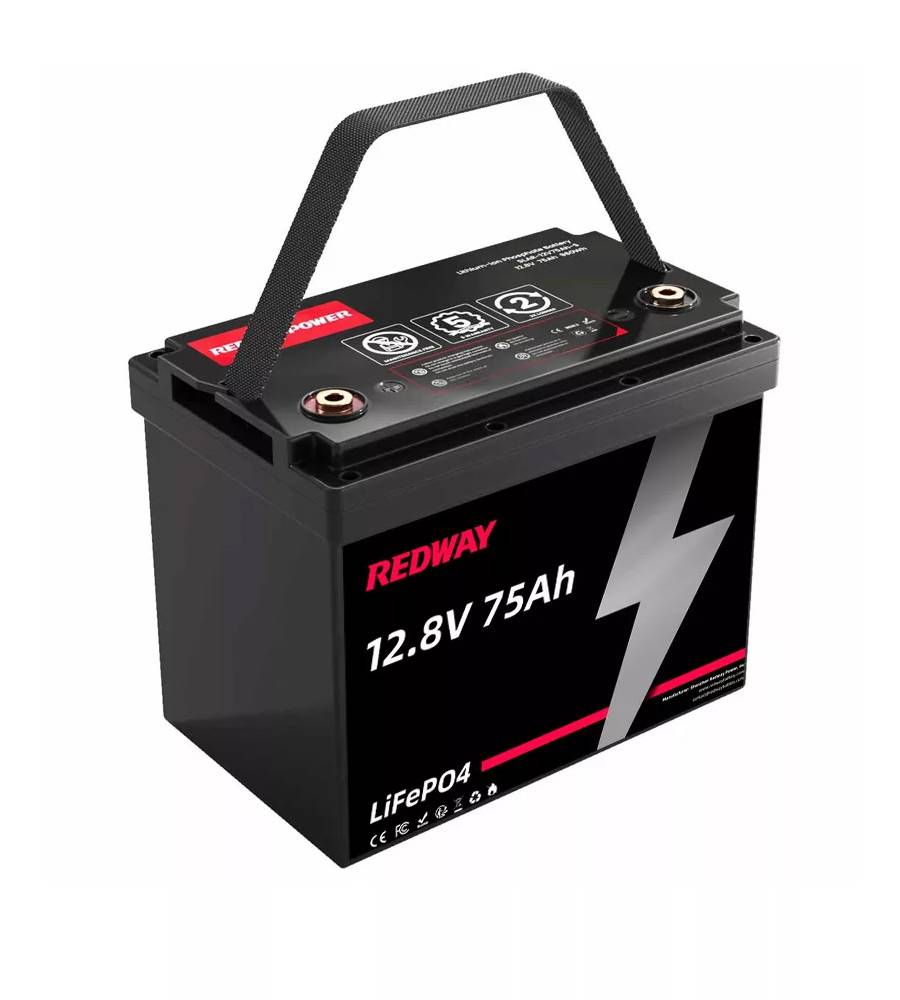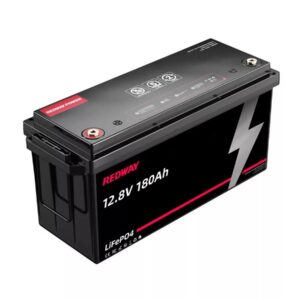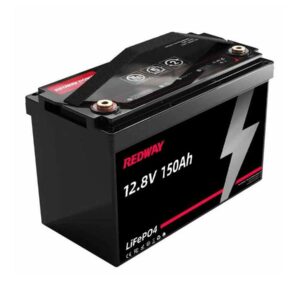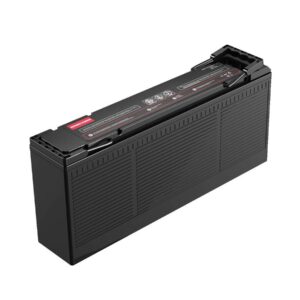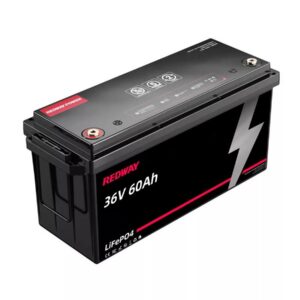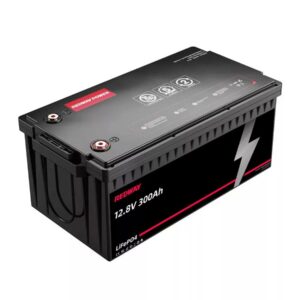Description
Our 12V 75Ah Lithium Battery (Group 24) is a cutting-edge energy storage solution engineered for RVs, marine systems, solar setups, and industrial applications. As a trusted lithium battery manufacturer, we specialize in delivering OEM/ODM-ready products that combine advanced LiFePO4 technology with robust performance for wholesale and custom projects.
Key Features
High Energy Density: 12.8V/75Ah configuration provides 960Wh of power, supporting extended runtime for off-grid and mobile applications.
Extended Lifespan: Over 5,000 cycles at 80% Depth of Discharge (DoD) ensure 3¨C5x longer service life than traditional batteries.
Space-Saving Design: Compact 260 x 168 x 210 mm dimensions and 7.5 kg weight simplify installation in confined spaces.
Rugged Durability: IP66-rated casing resists dust, water jets, and harsh outdoor/marine conditions.
Custom Integration: Tailor branding, self-heating modules, or Bluetooth monitoring for OEM projects.
Product Description
The 12V 75Ah Lithium Battery (Group 24) excels in demanding environments with a 150A peak discharge for high-power devices like inverters and trolling motors. Its military-grade ABS housing operates reliably between -20¡ãC and 60¡ãC, while the integrated BMS prevents overcharging, short circuits, and thermal risks.
Engineered for versatility, this lithium battery supports 75A continuous charging for rapid 2-hour replenishment and retains 99% charge after 3 months of storage. Wholesale buyers benefit from scalable pricing, 3-year warranties, and flexible ODM configurations to match specific voltage or capacity requirements.
A 12V 75Ah LiFePO4 battery delivers reliable power and long cycle life through lithium iron phosphate chemistry known for its exceptional stability and safety, combined with advanced battery management systems that protect and balance cells. This results in thousands of charge cycles, consistent energy output, and suitability for a wide range of demanding applications.
A 12V 75Ah LiFePO4 battery is a rechargeable lithium-ion battery using lithium iron phosphate as the cathode material, providing a nominal voltage of 12.8V and a capacity of 75 amp-hours. It operates by shuttling lithium ions between the cathode and anode during charge and discharge, delivering stable voltage and high current with minimal capacity loss over time.
How Long is the Cycle Life of a 12V 75Ah LiFePO4 Battery?
LiFePO4 batteries typically offer between 3,000 and 6,000 full charge-discharge cycles at 80% depth of discharge, with some high-quality models reaching up to 10,000 cycles. This cycle life translates to 8 to 15 years of service, significantly outlasting traditional lead-acid batteries.
What Makes LiFePO4 Batteries Reliable and Durable?
Reliability stems from the battery’s chemical and thermal stability, which minimizes risks of overheating and degradation. The robust cathode material resists structural damage during cycling, and the integrated Battery Management System (BMS) provides protection against overcharge, deep discharge, and temperature extremes, ensuring consistent performance.
How Does LiFePO4 Technology Compare to Lead-Acid Batteries?
LiFePO4 batteries outperform lead-acid batteries by offering up to 8 times longer cycle life, higher usable capacity (up to 90% depth of discharge), lighter weight (about 40% of lead-acid), and superior safety due to chemical stability. They also require less maintenance and provide more consistent voltage output.
What Applications Are Best Suited for a 12V 75Ah LiFePO4 Battery?
Common applications include:
-
Solar energy storage systems
-
Recreational vehicles (RVs) and marine power
-
Portable power tools and equipment
-
Backup power and UPS systems
-
Off-grid and mobile energy solutions
Their reliability and long life make them ideal for both residential and commercial uses.
How Does the Battery Management System (BMS) Enhance Reliability?
The BMS continuously monitors cell voltages, current, and temperature, preventing unsafe conditions like overcharging, deep discharge, and overheating. It balances cell charge levels to maximize battery life and ensures safe operation under varying environmental and load conditions.
What Are the Benefits of Cylindrical Cell Design in LiFePO4 Batteries?
Cylindrical cells offer excellent mechanical strength and heat dissipation, reducing swelling and thermal risks. Their uniform shape allows efficient packing and consistent current flow, which enhances battery longevity and reliability.
How Should You Maintain and Care for a 12V 75Ah LiFePO4 Battery?
Maintenance best practices include:
-
Avoiding discharges below recommended voltage limits
-
Storing at partial charge if unused for extended periods
-
Keeping batteries within recommended temperature ranges (0–45°C)
-
Regularly inspecting and cleaning terminals and connections
These steps help preserve capacity and extend battery life.
How Does Temperature Affect the Performance and Lifespan?
Extreme temperatures impact battery efficiency and degradation rates. Low temperatures increase internal resistance and reduce capacity, while high temperatures accelerate chemical breakdown. LiFePO4 batteries perform best between 0°C and 45°C, maintaining stable output and longevity.
How Can You Optimize Battery Performance in Off-Grid and Mobile Uses?
Optimizing performance involves pairing the battery with compatible charge controllers, ensuring proper ventilation, using BMS-enabled packs, and scheduling routine maintenance. Correct system design maximizes energy harvest and extends operational life.
Chart: Cycle Life Comparison of LiFePO4 vs. Lead-Acid Batteries
| Battery Type | Typical Cycle Life | Usable Capacity (%) | Weight Comparison | Maintenance Required |
|---|---|---|---|---|
| LiFePO4 | 3,000–10,000 | 80–90 | ~40% of Lead-Acid | Low |
| Lead-Acid | 300–500 | 50 | Baseline | High |
Chart: Recommended Operating Temperature Range for LiFePO4 Batteries
| Temperature Range (°C) | Performance Impact |
|---|---|
| Below 0 | Reduced capacity |
| 0 to 45 | Optimal performance |
| Above 45 | Accelerated aging risk |

